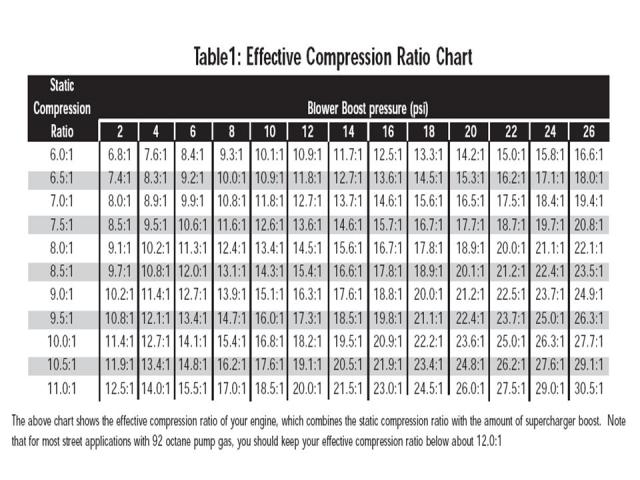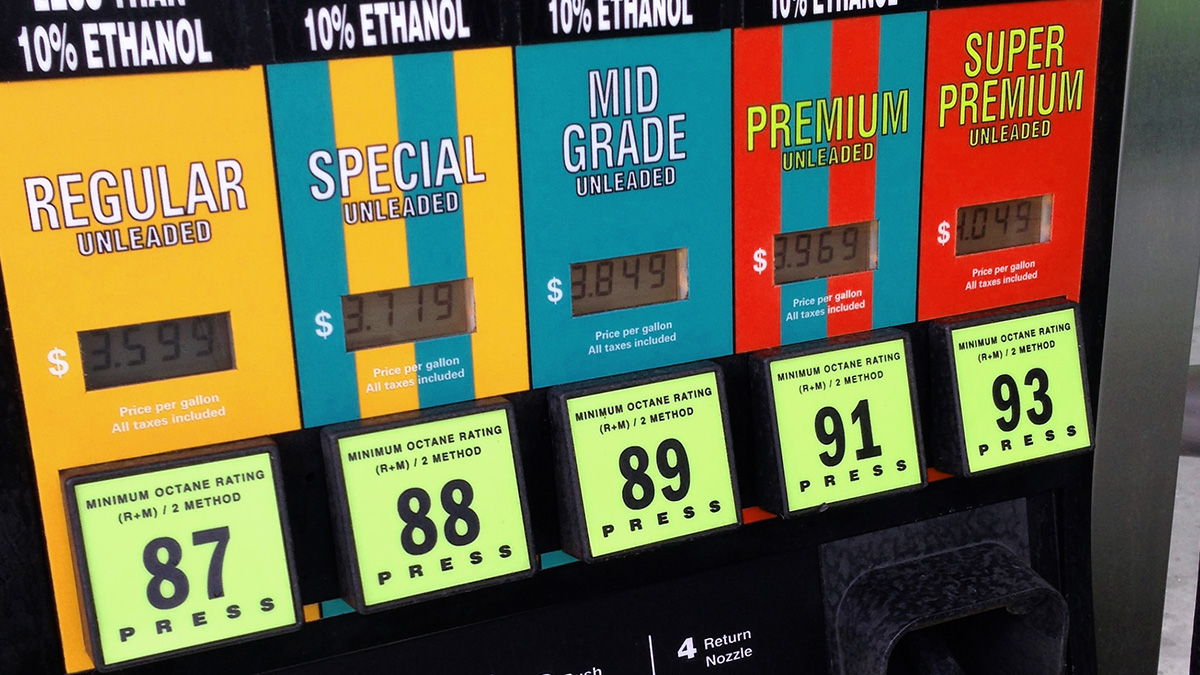When it comes to choosing the right octane rating for an engine with a 10 to 1 compression ratio, there are a few factors to consider. The compression ratio of an engine determines how much the air and fuel mixture is compressed inside the combustion chamber. A higher compression ratio typically increases the engine’s efficiency and power output but requires a higher octane rating fuel to prevent knocking and pre-ignition.
Understanding Octane
Octane rating is a measure of a fuel’s ability to resist knocking or pinging during combustion. Knocking occurs when the air and fuel mixture detonates prematurely in the cylinder, causing a knocking or pinging sound. Higher-octane fuels have better resistance to knocking and are recommended for high-compression engines.
Typically, a 10 to 1 compression ratio falls within the range of regular unleaded gasoline, which typically has an octane rating of 87. However, some factors may require the use of higher octane fuel.

Credit: boostane.com
Factors to Consider
While a 10 to 1 compression ratio may work well with regular unleaded gasoline (87 octane), the following factors may influence the choice of octane rating:
- Engine Design: Engines with advanced technology, such as turbocharging or direct injection, may require higher octane fuel due to increased pressure and temperature in the combustion chamber.
- Timing and Ignition Settings: Incorrect ignition timing or advanced ignition settings can cause knocking. Adjustments may be needed, and higher octane fuel can help prevent knocking.
- Altitude: Higher altitudes have lower air density, which affects combustion. In some cases, high altitudes may require higher octane fuel due to reduced oxygen levels.
- Modifications: If the engine has aftermarket modifications, such as increased compression or forced induction, higher octane fuel may be necessary to prevent knocking.
Benefits of Higher Octane
Using a higher octane fuel than the minimum requirement can provide some benefits, such as:
- Reduced Knocking: Higher octane fuel reduces the likelihood of knocking, ensuring optimum engine performance.
- Improved Efficiency: Higher-octane fuel burns more efficiently, potentially improving fuel mileage.
- Increased Power: Some high-performance engines can produce more power with higher octane fuel due to improved combustion.
- Prevention of Engine Damage: Pre-ignition and knocking can cause engine damage over time. Higher octane fuel helps prevent these issues.
Choosing the Right Octane
When determining the octane rating for your 10 to 1 compression engine, it is essential to consult your vehicle’s owner’s manual. The manufacturer typically recommends the minimum octane rating suitable for your engine. If you have made modifications or experience knocking, it may be advisable to use a higher octane fuel.
Always remember that using a lower octane fuel than recommended can lead to knocking and potentially cause engine damage.

Credit: blog.amsoil.com
In Conclusion
When dealing with a 10 to 1 compression ratio, regular unleaded gasoline with an octane rating of 87 should typically suffice. However, depending on various factors such as engine design, altitude, modifications, and timing settings, it may be necessary to use higher octane fuels to prevent knocking and optimize engine performance. Consulting your vehicle’s manual and seeking professional advice can ensure you choose the right octane fuel for your 10 to 1 compression engine.
Frequently Asked Questions Of What Octane For 10 To 1 Compression
Does 10 To 1 Compression Require Premium Gas?
No, 10 to 1 compression does not necessarily require premium gas. However, it is generally recommended to use higher octane gas to prevent engine knocking and maximize performance. Be sure to consult your vehicle’s manual for the optimal fuel requirements.
Can I Run Pump Gas On 10 To 1 Compression?
Yes, you can run pump gas on a 10 to 1 compression. Since pump gas has a lower octane rating, it may lead to knocking and engine damage. However, you can use additives or higher octane fuel to mitigate these issues.
It’s recommended to consult with a professional for optimal performance and to avoid any potential damage.
Is A 10 1 Compression Ratio Good?
A compression ratio of 10:1 is considered good. It indicates efficient combustion and can provide better power and fuel efficiency. However, it’s important to note that the optimal compression ratio depends on various factors, such as the engine design and fuel quality.
Professional consultation is recommended for specific engine modifications.
Can You Run 93 Octane With 12 To 1 Compression?
Yes, you can run 93 octane with 12 to 1 compression. The higher octane rating helps prevent knocking in high-compression engines, providing better performance and efficiency. It is important to choose the appropriate fuel for your vehicle to avoid damage and maintain optimal engine performance.
How Does Compression Ratio Affect Octane Requirements?
The compression ratio of an engine affects the octane requirements because higher compression ratios create higher cylinder pressure, which increases the chance of pre-ignition or detonation. Higher octane fuel is needed to prevent these issues.




